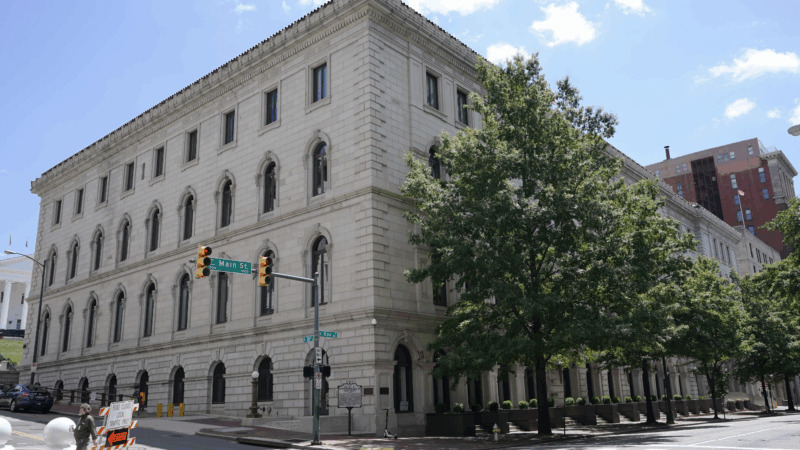The U.S. Copyright Office used to be fairly low-drama. Not anymore
The U.S. Copyright Office is normally a quiet place. It mostly exists to register materials for copyright and advise members of Congress on copyright issues. Experts and insiders used words like “stable” and “sleepy” to describe the agency. Not anymore.
Shira Perlmutter, the abruptly fired ex-head of the Copyright Office, is suing President Trump, arguing her firing was unconstitutional and a violation of the separation of powers. This is going on just as the office has published its report on whether or not using copyrighted works to train generative AI counts as fair use, which is a legal idea allowing the use of some copyrighted materials without permission in certain circumstances. And it’s a report that could influence the dozens of lawsuits going on right now over copyright and AI usage.
“This is just a foreshadowing of the front lines of the generative AI battle,” said Kristelia García, a professor at Georgetown Law focusing on intellectual property.
García and others inside the copyright world agree – this amount of commotion and palace intrigue at the Copyright Office is unprecedented. Here’s a quick breakdown of the latest to catch you up.
A shakeup at the Library of Congress
The U.S. Copyright Office exists within the Library of Congress. And on May 8, President Trump fired Carla Hayden, the Librarian of Congress. Then on May 9, the Copyright Office published its highly anticipated report on copyright and AI usage. The odd thing about it was that it was, and still is, uploaded as a “pre-publication version.”
“That part is extremely weird,” said Dave Hansen, the executive director of the Authors Alliance, a group which argues for less strict copyright laws. “I don’t think they’ve ever done that before.”
By May 10, Perlmutter was fired by an assistant to the president. On May 12, Trump appointed Todd Blanche, deputy U.S. attorney general, as the new Librarian of Congress. Paul Perkins, who works for the Department of Justice, was named the new copyright register, the chief of that office.
That same day, the Copyright Office paused issuing new registration certificates. According to a statement from Lisa Berardi Marflak, a Copyright Office spokesperson, this was done “out of an abundance of caution.” This pause lasted 12 business days and impacted about 20,000 registrations. While the office has resumed registering copyrights, they are now going out without the register’s signature. “There is no requirement that the Register’s signature must appear on registration certificates,” reads the statement.
Perlmutter’s lawsuit argues that since the Library of Congress as well as the Copyright Office exist under the legislative branch, the president has no authority to fire people, or hire replacements. Lawyers for President Trump argue the moves were legal under the Federal Vacancies Reform Act.
NPR has reached out to legal representatives on both sides, and was given no comment.
Perlmutter’s lawsuit originally requested a temporary restraining order blocking her firing, which was denied by a federal judge. The next hearings are set to take place in July.
Inside the AI report
That big bombshell report on generative AI and copyright can be summed up like this – in some instances, using copyrighted material to train AI models could count as fair use. In other cases, it wouldn’t.
The conclusion of the report says this: “Various uses of copyrighted works in AI training are likely to be transformative. The extent to which they are fair, however, will depend on what works were used, from what source, for what purpose, and with what controls on the outputs—all of which can affect the market.”
“It’s very even keeled,” said Keith Kupferschmid, CEO of the Copyright Alliance, a group that represents artists and publishers pushing for stronger copyright laws.
Kupferschmid said the report avoids generalizations and takes arguments on a case-by-case basis.
“Perlmutter was beloved, no matter whether you agreed with her or not, because she did the hard work,” Kupferschmid said. “She always was very thoughtful and considered all these different viewpoints.”
It remains to be seen how the report will be used in the dozens of legal cases over copyright and AI usage.
Annual governors’ gathering with White House unraveling after Trump excludes Democrats
An annual meeting of the nation's governors that has long served as a rare bipartisan gathering is unraveling after President Donald Trump excluded Democratic governors from White House events.
Federal judge acknowledges ‘abusive workplace’ in court order
The order did not identify the judge in question but two sources familiar with the process told NPR it is U.S. District Judge Lydia Kay Griggsby, a Biden appointee.
Top 5 takeaways from the House immigration oversight hearing
The hearing underscored how deeply divided Republicans and Democrats remain on top-level changes to immigration enforcement in the wake of the shootings of two U.S. citizens.
Snowboarder Chloe Kim is chasing an Olympic gold three-peat with a torn labrum
At 25, Chloe Kim could become the first halfpipe snowboarder to win three consecutive Olympic golds.
Pakistan-Afghanistan border closures paralyze trade along a key route
Trucks have been stuck at the closed border since October. Both countries are facing economic losses with no end in sight. The Taliban also banned all Pakistani pharmaceutical imports to Afghanistan.
Malinowski concedes to Mejia in Democratic House special primary in New Jersey
With the race still too close to call, former congressman Tom Malinowski conceded to challenger Analilia Mejia in a Democratic primary to replace the seat vacated by New Jersey Gov. Mikie Sherrill.





